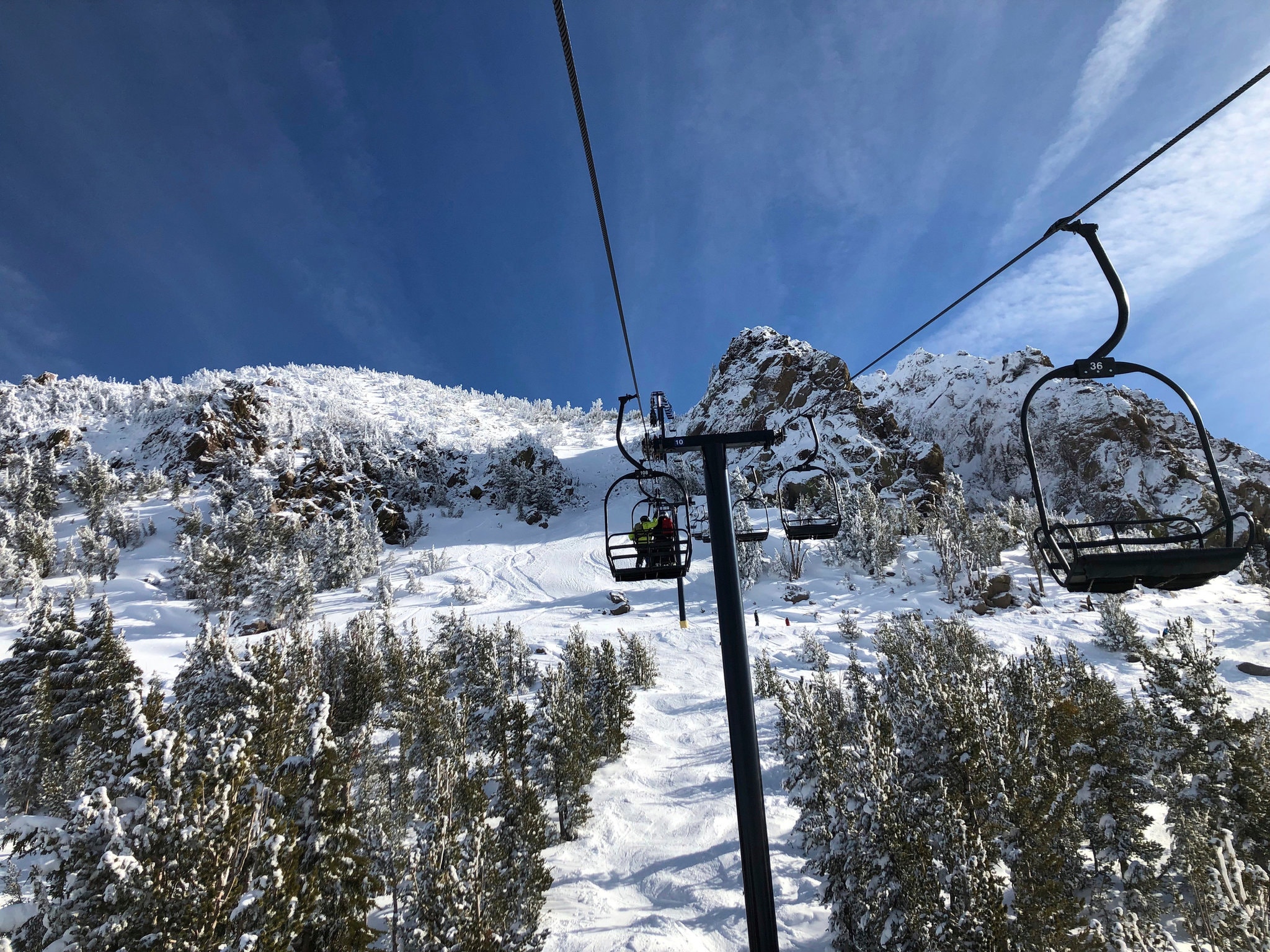Why Mammoth Lakes Is Turning Away Visitors
Officials in a California ski town worry about its role as an escape.

Skiers in Mammoth Lakes in 2018. Now, because of worries over the coronavirus, the resort town is trying to keep tourists away. Christopher Weber/Associated Press
April 6, 2020
For most of the year, about 8,000 people live in Mammoth Lakes, a resort town 7,881 feet high in the Sierra Nevada mountains. At peak ski season, the population triples, a fact normally welcomed by civic leaders.
But not now. Not when surrounding Mono County has the highest rate of coronavirus infection in the state. Not when the county’s lone hospital has just 17 beds. Not when transferring a patient to another hospital means a special medical evacuation flight at a cost of up to $50,000, and when even this option can be delayed by frequent blizzard conditions. And when the town’s thin air only makes respiratory ailments worse.
“I’m absolutely terrified,” Dr. Tom Boo, Mono County’s public health officer, said in an interview the same day Mammoth Lakes decided to set up a highway checkpoint to turn away tourists.
Dr. Boo and other county officials were stunned by how swiftly the virus spread through this community. In late March there was one confirmed case in Mono County; two weeks later, 19 people were infected, one person had died, and four more had symptoms serious enough to require hospitalization.
This relentless math is behind the growing fear that Mammoth Hospital, which has four ventilators and two I.C.U. beds, will soon be overwhelmed. Adding to the worry, an infected patient’s special medical evacuation flight last month was held up for hours by a snowstorm.
In a letter to the state health department, Thomas Parker, chief executive of Mammoth Hospital, said that based on the rapidly deteriorating conditions, the hospital was bracing for a surge of up to 100 patients a day, with several dozen likely needing ventilators because of the altitude. “We expect our ability to transfer to a higher level of care (Reno or Los Angeles) will soon be eliminated due to saturation of those hospital facilities,” he added.
Dr. Boo put it more bluntly: “In that situation,” he said, “people will die.”
With no good alternatives, the town has concentrated its efforts on the twin challenges of emptying the town of skiers and snowboarders and blocking access to people fleeing the likes of Los Angeles and San Francisco to wait out the pandemic in their vacation homes.
“If they’re here and they’re sick, we can’t help them,” Ingrid Braun, the sheriff of Mono County, explained.
On March 15, a day before San Francisco became the first major metro area in the nation to order residents to shelter in place, Dr. Boo declared a local health emergency in Mono County. Ski areas were closed, followed by hotels, motels and bars. In the days since, Dr. Boo has issued increasingly severe directives, including the threat of a $1,000 fine and 90 days in jail for going to work sick, even for jobs deemed essential. The Mono County tourism commission started a social media campaign to actually discourage tourism — #MonoPause.
When people kept coming, local leaders considered simply shutting down the state highway into town. They settled on a slightly less severe option: establishing the highway checkpoint. Once this step gets state approval, everyone headed into Mammoth Lakes will be stopped and questioned. Only locals and those with essential business will be allowed through.
“We’re not xenophobes,” Sheriff Braun said. “We’re just really worried about being able to take care of the people who live here.”
Dr. Boo is spending restless nights brainstorming new ways to keep his friends and neighbors safe. The hospital has been split into Covid-19 positive and negative areas. An ethics plan about who will get access to lifesaving equipment is in place, a matter of urgency since the state said it could take weeks or months to supply a half-dozen more ventilators. And Dr. Boo is wondering when it will be necessary to close everything that’s still open — grocery stores included — to buy the town a little more time.
“Lying here at 5:20 a.m., the story isn’t really a road checkpoint,” Dr. Boo wrote in a recent email. “It’s about a little mountain town and its little hospital on the verge of getting crushed.”
Annie Berman is a second-year student at the U.C. Berkeley Graduate School of Journalism.


